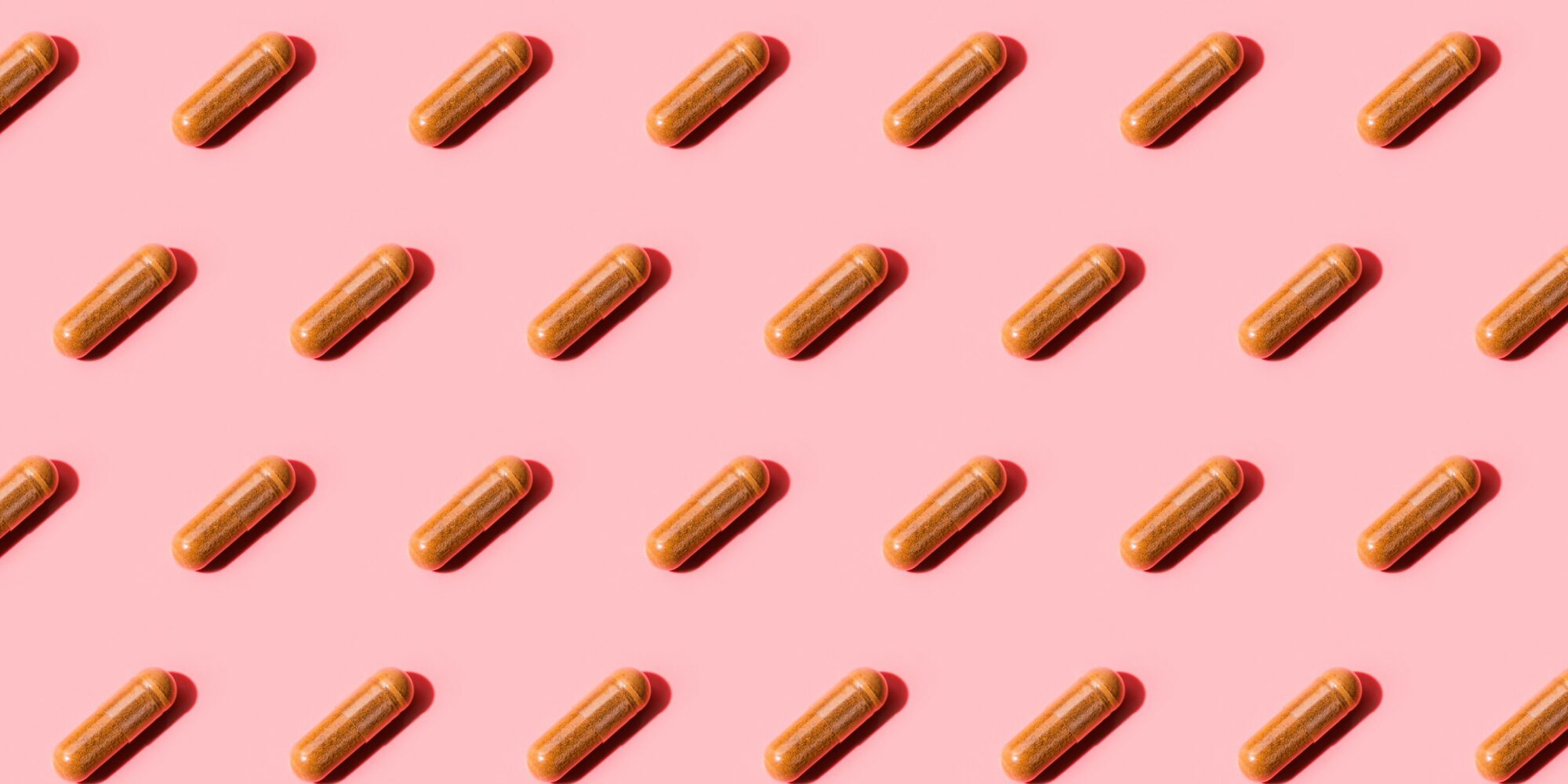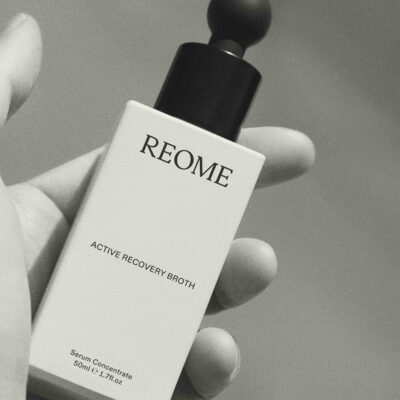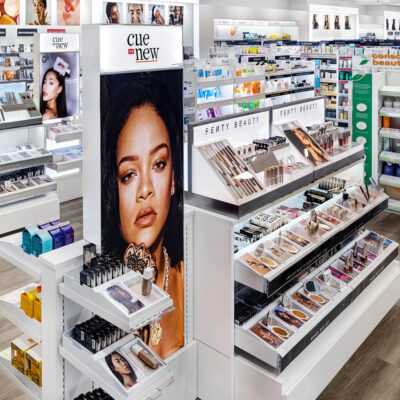
What Does Wellness Mean To Consumers Today?
Valued at $4.4 trillion globally and forecast to reach $7 trillion by 2025, according to the Global Wellness Institute, the wellness industry has crawled into seemingly every corner of consumers’ lives, from drinking to doodling. Online wellness community Wild Elements, which pointed out that scribbling can be self-care in a Friday email, revealed making art has been found to reduce anxiety levels by 70% or more.
To help us get a handle on where wellness stands as it grows vaster and vaster, for the latest edition of our ongoing series posing questions relevant to indie beauty, we asked 18 wellness entrepreneurs, executives and experts the following question: What does wellness mean to consumers today?
- Cristina Nuñez Co-Founder and General Partner, True Beauty Ventures
The beauty of wellness is that it can apply to so many facets of people’s lives. Pre-COVID, it may have been more synonymous with physical health (e.g., fitness, nutrition, sleep, disease prevention, etc.), whereas over the last few years it has become associated with all aspects of a person’s well-being integrating mental, emotional, sexual, hormonal and spiritual health, to name a few.
Consumers’ social and news feeds are increasingly riddled with routines, advice and steps to achieve one’s “ultimate” wellness goals. They are marketed all types of wellness diagnostics and trackers for diet, exercise, sleep, gut, period, pregnancy, hydration, and so on, ironically a bit anxiety-producing at times.
Despite the rise of the wellness industry overall and the significant number of new brands launched to meet consumers’ varying needs, the unifying factor of wellness today is an overwhelming drive to make people more aware of their individual state of well-being. And if consumers choose to join any kind of wellness journey, the industry is empowering them to take control with access to a growing amount of information, tools and products right at their fingertips.
- Nina Kossoff Creator, ThemsHealth
I think people are looking at wellness through a more multifaceted, interdisciplinary lens. Wellness is more than singularly workout routine or eating habits (and so many other things under the wellness umbrella), but rather the combination of factors that influence how we move throughout the world.
What types of physical movements is my body comfortable and capable of doing? What wellness spaces am I welcome in or comfortable with being in? How much money do I have to do the activities or get the foods or tools I want or need to feel whole? How much time do I have to dedicate to myself in a way that feels nourishing and not like an overly packed schedule? How do all of these things vary day to-day? Month-to-month?
Wellness looks different to everyone, and I think more and more of us are understanding all of the factors that impact our decisions about what makes us feel well and following those instincts rather than looking to normative beauty standards or idealized living standards or really just others' standards of what wellness is.
- Nadine Joseph Founder, Peak and Valley
To me, wellness is about being in alignment with your body and your mind. When we are knocked out of balance, either through overworking ourselves or eating badly or whatever it is, we are thrown out of alignment and that can translate into all sorts of physical and mental ailments.
Taking care of your overall well-being on a daily basis through exercise, eating healthily or drinking your daily adaptogens may take work upfront, but provides you with a sense of peace and satisfaction that is immeasurable.
- Tina Bou-Saba Co-Founder and Managing Partner, Verity Venture Partners
This is a weighty topic for sure. It seems to me that wellness has primarily connoted physical health for some time, specifically eating well, exercising and sleeping. This in turn manifested in a specific physical appearance: clear, glowing skin, a fit body and lots of energy, the Goop ideal. There is certainly nothing wrong with those pillars of health.
However, I think that, over the past couple of years, likely accelerated by the pandemic, wellness has become more inclusive of mental health as well. This reflects the notion that, while one might be in good physical health, one is not truly “well” if they are not in a healthy state emotionally and mentally and/or if their environment is toxic, whether that be emotionally toxic or literally toxic.
I love how movements like body positivity push our thinking on wellness. Is being skinny and miserable better than being curvy and happy? No way. This should also prompt us to recognize that for many people, there are real barriers to achieving physical health that often have social components (for example, living in a food desert).
Physical, mental and social health are all connected, and they reinforce each other. Bottom line, I think that wellness is changing for the better. That said, there is always tension between commercial interests and what being “well” means to individuals.
We can’t buy our way to wellness despite what we have been led to believe, but there are certainly products and services that can help us to feel better inside and out. We just have to be realistic about what they can and cannot achieve.
- Eric Ryan Co-Founder, Will Perform, Welly, Olly And Method
I think consumers today consider wellness to be, importantly, a holistic, everyday need. We are really seeing this with those that live an active lifestyle. Just like personal care or skincare is part of your daily life, we see an opportunity to inspire people to embrace performance care as part of a daily ritual.
It’s both a mindset shift as well as a consumer need, morning and night solutions, proactive and reactive relief. Reframing it this way as performance care is a simple, but powerful idea. Recovery shouldn’t just be reactive and reserved for when we’re already in pain or when we get older, it should be about restoring and rebuilding on a daily basis.
You can’t expect people to adopt a ritual if it’s not enjoyable, and that’s where Will Perform feels truly disruptive. These are beautifully designed and thoughtfully formulated self-care products that consumers will look forward to using.
- Kathy Gramling Consumer Industry Markets Leader, EY Americas
Pandemic-related uncertainty over the past three years has given way to a more health-conscious consumer. Now more than ever, consumers are making purchasing decisions through the lens of protecting the overall health and well-being of themselves and their families.
A shift from even five years ago, EY’s Future Consumer Index says 17% of U.S. consumers identify themselves as "Health First," meaning they prioritize their physical and mental well-being above all when making purchasing decisions. They focus on choosing brands and products that they trust to be safe and minimizing unnecessary risk such as shopping in store versus online.
Retailers looking to target this consumer segment will need to offer products that combine physical and mental health, while being transparent about ingredients and health claims.
- Shannon Vaughn Founder and CEO, Pursoma
I believe there was a clear segmentation from health versus wellness in the early stages of the arrival of the term "wellness" as it relates to a consumer market. Health has been associated with medical care, some alternative homeopathic methods, exercise and eating better, wellness arrived with an often unapproachable or extreme living vibe or a cost-prohibitive access point.
Today, I believe we have moved beyond the unapproachable trend of wellness, and the consumer is making healthier more mindful choices without even using the world wellness. They are acknowledging stress levels and looking for ways to reduce those, so wellness has become more integrated into all consumer choices, and the providers of those goods and services are finding ways to offer it in a more accessible and feasible way.
- Ashley Harmon Founder, Mela Vitamins
Consumers have taken a more intuitive and holistic view of wellness, and they are prioritizing routines and products that make them feel good physically and mentally.
Consumers are also doing their research and have high expectations of wellness and beauty brands. They want brands to use transparent and clean ingredients, prioritize sustainability and create niche products that meet their specific needs.
It’s less about selling consumers a generic healthy lifestyle and more about creating products that can support a consumer’s unique wellness journey and help them live a happy and healthy life.
- Rachel Roberts Mattox Founder, Oyl + Water
Our concept of wellness has evolved from spa days and supplements to more integrated practices and products, thanks to visionary founders who saw where the health and wellness industry was headed and developed brands that filled a white space.
Moon Juice made adaptogens mainstream; Beauty Chef made gut health sexy and delicious; HigherDOSE brought the power of infrared saunas into our homes; Maude and Foria brought sexual wellness to the fore; and non-alcoholic spirits like Seedlip make Dry January enjoyable.
CBD has also played an important role in the evolution of the concept of wellness, and brands like Prima are doubling down on its positive impact on mental health.
Because these wellness products and experiences deliver holistic benefits that make us look as good as we feel, there is a natural overlap with the beauty industry. A healthy lifestyle is becoming the new status symbol, and with more alternative wellness therapies like psilocybin and ketamine in sight, my hunch is that we're at the beginning of a much bigger shift.
- Caroline Hofmann Head of Emerging Business, Thirty Madison
For today’s consumers, health, wellness and beauty have started to blend together and reach beyond just the “physical.” If a woman experiences chronic migraine or severe eczema, the treatment approach spans medical with prescriptions, self-care with stress management, and beauty with creams and makeup solutions.
Achieving optimal wellness now requires a deeper understanding of consumers’ physical, emotional and mental well-being.
- Lulu Ge Founder and CEO, Elix
Wellness today is evolving to mean feeling as good on the inside as we strive to look on the outside. For decades, if not centuries, the focus of beauty has been what we're applying topically and how we look to the external world. I'm really excited to see a major shift in the past few years, which the pandemic accelerated, to a greater focus on how we feel.
It's becoming more about creating intimate and personal rituals that enable us to tune in to the signals of our bodies in order to give ourselves the nourishment we need (from a mind, body, spirit perspective). That's why we're seeing a rise in demand for holistic health and mindfulness practices along with a hunger for content that helps us develop greater knowledge and insight towards ourselves so we can personalize our own wellness journeys.
Here at Elix, we do not believe in one-size-fits-all wellness. We're focused on educational content around menstrual wellness and cycle syncing that empowers our community members to make the best decisions for themselves: i.e., how we can sync our diet, movement and lifestyle practices to the fluctuations of our hormones so that we can feel our best every day of our cycle and live to our full potential in our lives?
- Rebecca Bartlett Principal and Creative Director, Bartlett Brands
From skincare to sexual health to sobriety to psilocybin, we are collectively and perpetually reinventing our self-care rituals. The overly ambitious all-or-nothing methods of the past are outdated. Consumers are exploring well-being on their own terms: Resting. Raging. Rejecting perfection. More real life. More in the moment. More achievable. Accepting that you never really arrive at the end goal, but it feels good to keep trying.
- Jessamyn Stanley Co-Founder, Yoga Instructor and Author, The Underbelly
I think most people define wellness as whether or not you look the way our society has defined healthy, which generally means thin and able-bodied.
But wellness is much more complex than that. It's about the union of our body, mind and spirit. It's about mental and emotional health, not to mention that being thin and able-bodied are not the bastions of physical health.
The way you look is a small piece of the puzzle. In my opinion, the way you feel on the inside is a much bigger indicator of overall wellness.
- Lauren Leibrandt Director, Beauty and Wellness Practice Leader, Baird
Wellness has become increasingly important to today’s consumer. Previously, it was more of a luxury or a nice-to-have, one day I will take good care of myself. That shifted with the pandemic and consumers seeing how important it is to prioritize self-care.
So, there's definitely been a lifestyle shift in terms of where the consumer is spending money and time. It's at the top of their list of priorities.
- Wendy Nicholson Managing Director, Consumer Investment Banking, Baird
In defining wellness today, the first word that comes to my mind is "self-care." Wellness is about looking inward and thinking, "What's going to help me feel better, not just today, but tomorrow as well?"
It's an umbrella term that encompasses health, beauty, fitness and nutrition, and it's become a broad concept with the whole body, mind and spirit being equally important.
- Katie Wilson Founder and CEO, BelliWelli
The concept of wellness has broadened to encompass all facets of a consumer's life. The focus has shifted to a holistic and full-body view of health that goes beyond a single product or activity to small lifestyle changes. Consumers are much more aware of what they are putting in and on their bodies, from food to beauty products, which has caused an uptick in better-for-you options.
It can be overwhelming, so I think wellness has really come to mean making decisions based on what feels best for you whether that is physically, mentally or emotionally. It can take any form but results in a positive impact on overall well-being. At BelliWelli, we aim to create a community for those who are on this wellness journey so we can all figure it out together.
- Stephanie Morimoto Owner and CEO, Asutra
I’m particularly interested in what wellness means to gen X, which I’m part of and is who we serve at Asutra. We gen X women are largely ignored by brands, retailers and marketing. And yet gen X significantly outspends all other generations: 44% more than boomers and 18% more than Gen Z, according to SmartAsset.
Gen X women are looking holistically at their wellness—weaving together mental health, fitness, physical health, self-care and beauty—and looking for products that deliver results. Gen X women are healthy and active and want to stay that way, but we’re having to create our own roadmap. We’re living our best lives, and we invest in self-care so that we can keep doing so.
- Kat Schneider Founder and CEO, Ritual
Wellness to the consumer today is feeling confident about what we are putting in and on their bodies. While we have become more and more educated on how powerful supplements and other wellness products can be, as consumers we’ve also become more aware of the issues like heavy metals, efficacy and greenwashing in the industry. It’s hard to know if we are doing something healthy for ourselves.
A good example of this is plant-based protein powders. Consumers think they are doing something healthy for themselves and the planet by consuming plant-based protein over whey protein, but the industry is notoriously high in heavy metals. There is very little transparency.
At Ritual, we believe in traceability, which is why on our site with our protein powder you can actually see our heavy metal results, where the ingredients come from, and even the sustainability of the packaging materials. That assurance is important for consumers as they navigate their wellness journeys.
It’s important that people feel like they’ve made the best choice when it comes to their health.
If you have a question you’d like Beauty Independent to ask wellness and beauty entrepreneurs, executives, investors and experts, please send it to editor@beautyindependent.com.






Leave a Reply
You must be logged in to post a comment.